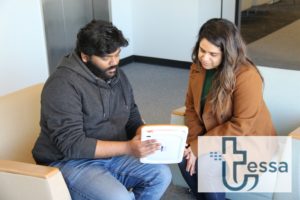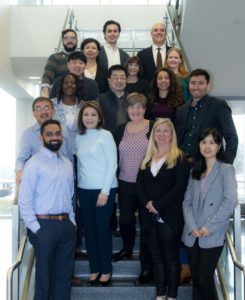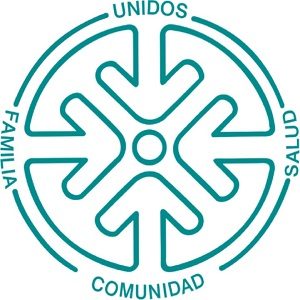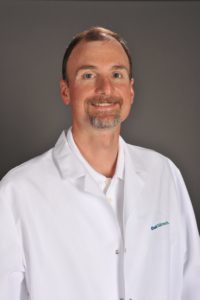NorTex 2020 Spring Newsletter
March 28, 2020 • NorTex
THE NORTEX NEWSLETTER
Improving Screening for Interpersonal Violence
Technology Enhanced Screening and Supportive Assistance (TESSA)
In 2015, the University of North Texas Health Science Center at Fort Worth College of Public Health, in partnership with nine NorTex primary care clinics, MedStar Mobile Healthcare, and three local IPV agencies, received funding for the Technology Enhanced Screening and Supportive Assistance (TESSA) demonstration project.  The goal of TESSA was to increase screening for interpersonal violence (IPV) within primary care settings through the use of tablet-based screening and a mobile team of health advocates. After the initial pilot period, overall results suggest that the use of tablets in screening can lead to higher patient disclosure rates of IPV and offer an improved healthcare response for victims. Over the pilot, 1,495 patients completed the TESSA screener; composed of questions about trauma history and behavioral health risk factors. Of those screened, 28.4% were identified as having experienced IPV, disclosing either current or past experiences with abuse. In several clinics, IPV screening had not been previously conducted, so these results provided unique insight into the trauma experiences of their patient populations. In one clinic that did have IPV data prior to TESSA implementation, IPV disclosure rates from verbal screening alone were below 1%. As this demonstrates, there was a significant increase in identified victims when tablets were introduced. Another trend noted during the pilot was that many patients with IPV histories did want to speak with someone about their experiences. In fact, 31% of patients with positive IPV screens, self-selected to speak to a member of the TESSA health advocate team. Health advocates helped patients process their trauma experiences and its impact on their health, while also assisting with setting goals around safety and self-care and linking to local IPV resources. Services extended past the clinic appointment, offering patients ongoing support and follow up in collaboration with their medical team. The early success of the TESSA model has allowed HSC to continue the project past the pilot period, obtain new sources of funding, and expand partnerships to improve health outcomes for victims of interpersonal violence. These expanded services include the addition of two new JPS clinics to the project and expanding health advocate services to include rapid HIV testing and sexual health screenings.
The goal of TESSA was to increase screening for interpersonal violence (IPV) within primary care settings through the use of tablet-based screening and a mobile team of health advocates. After the initial pilot period, overall results suggest that the use of tablets in screening can lead to higher patient disclosure rates of IPV and offer an improved healthcare response for victims. Over the pilot, 1,495 patients completed the TESSA screener; composed of questions about trauma history and behavioral health risk factors. Of those screened, 28.4% were identified as having experienced IPV, disclosing either current or past experiences with abuse. In several clinics, IPV screening had not been previously conducted, so these results provided unique insight into the trauma experiences of their patient populations. In one clinic that did have IPV data prior to TESSA implementation, IPV disclosure rates from verbal screening alone were below 1%. As this demonstrates, there was a significant increase in identified victims when tablets were introduced. Another trend noted during the pilot was that many patients with IPV histories did want to speak with someone about their experiences. In fact, 31% of patients with positive IPV screens, self-selected to speak to a member of the TESSA health advocate team. Health advocates helped patients process their trauma experiences and its impact on their health, while also assisting with setting goals around safety and self-care and linking to local IPV resources. Services extended past the clinic appointment, offering patients ongoing support and follow up in collaboration with their medical team. The early success of the TESSA model has allowed HSC to continue the project past the pilot period, obtain new sources of funding, and expand partnerships to improve health outcomes for victims of interpersonal violence. These expanded services include the addition of two new JPS clinics to the project and expanding health advocate services to include rapid HIV testing and sexual health screenings.
NORTEX RESEARCH PROJECTS
FEATURED CURRENT NORTEX PROJECT
The University of Texas at Arlington teamed up with NorTex, John Peter Smith Health System, and Johns Hopkins University to establish a learning laboratory for patient safety in primary care, in a four-year project. The project team met in January for the first annual kick-off meeting at the University of North Texas Health Science Center. The two-day workshop focused on The Partnership in Resilience for Medication Safety Learning Lab (PROMIS Lab), to redesign primary care work systems to address leading preventable patient harms associated with medications, especially experienced by older adults of low socio-economic status. Attendees discussed the use of the well-known systems engineering approach to achieve the PROMIS Lab Aim 1 goal, problem analysis, geared towards defining the problem and design requirements along with interview and focus group questions.
The PROMIS Lab will work to develop a much needed strategy in primary care where professionals are in a unique position to partner with patients and community caregivers to reduce risks of medication-related preventable harms, such as polypharmacy and inaccurate medication information, and to cope with setbacks and disturbances that threaten safety. The PROMIS Lab includes a network of primary care clinics and community partners to involve clinician, older adults and their caregivers in design cycles. Interventions developed will be tested and evaluated in simulated and actual primary care settings, aiming at resilience to health care delivery challenges in vulnerable populations and the clinicians caring for them. Project team attendees consisted of engineers, health services researchers, lay patient advocates, safety experts, and primary care clinicians.
PI: Yan Xiao, PhD; Funding Source: Agency for Healthcare Research and Quality
FEATURED COMPLETED NORTEX PROJECT
T rends in Magnesium Intake among Hispanic Adults, the National Health and Nutrition Examination Survey (NHANES) 1999–2014
rends in Magnesium Intake among Hispanic Adults, the National Health and Nutrition Examination Survey (NHANES) 1999–2014
Abstract: This study aimed at examining trends in magnesium intake among U.S. Hispanic adults stratified by gender, Hispanic
origins, age, and poverty income ratio (PIR) level. Data on 9304 Hispanic adults aged 20 years from eight National Health and Nutrition Examination Survey (NHANES) cycles (1999–2014) were included in this study. For each cycle, survey-weighted mean dietary and total magnesium intakes were estimated. The prevalence of dietary and total magnesium intake below the Recommended Dietary Allowance (RDA) was further estimated stratified by gender and age groups. Linear regression was used to test trend. Over the survey cycles, both dietary and total magnesium intakes were significantly increased among Hispanic adults. In the study period, magnesium intake tended to be lower in females, adults in other Hispanic-origin group, those aged 65 years old, and those with a PIR <1.0. The prevalence of magnesium intake inadequacy decreased among Hispanic adults; however, more than 70% of Hispanic males and females
continued to have magnesium intake below the RDA in 2013– 2014. From 1999/2000 to 2013/2014, despite several improvements in magnesium intake having been identified, additional findings showed insufficient intake in Hispanic males and females, suggesting the need to improve magnesium intake through diet and dietary supplementation for U.S. Hispanics.
PI: Menghua Tao, PhD; Jialing Liu is a student working with Dr. Tao
LOS BARRIOS UNIDOS COMMUNITY CLINIC
In 1972, the residents of several West Dallas neighborhoods united to open a community clinic in a portable building to serve a population disenfranchised from the economic and social services of the city due primarily to language and cultural differences.
Los Barrios Unidos Community Clinic (LBUCC) has experienced a steady growth since incorporating as a nonprofit in 1972, and later, obtaining the designation as a Federally Qualified Community Health Center (FQHC). The organization operates three facilities totaling nearly 70,000 square feet, and will soon open a fourth health center serving one of the city’s most impoverished, underserved neighborhoods. LBUCC turns no patient away due to an inability to pay for services. In 2019, 93% of LBUCC’s nearly 27,000 patients were Hispanic, 98% were low-income and 56% were uninsured.  Moreover, LBUCC has been fully accredited by The Joint Commission since 1998.
Moreover, LBUCC has been fully accredited by The Joint Commission since 1998.
LBUCC offers pediatric and adult primary care, obstetrics, integrated mental health care, podiatry, optometry, pediatric dentistry, a pharmacy and a WIC program. LBUCC has perfected group health care, successfully blending two innovative programs: a Community Health Worker (CHW) outreach and education program and Shared Medical Appointments. Patients with common diagnoses such as asthma and diabetes participate as a group in a series of disease management sessions provided by a CHW, as well as a one-on-one visit with a doctor, in the same setting. Dialogue is encouraged; patients learn from the health care team and from each other. We also offer group care for patients struggling with obesity, as well as the popular programs CenteringPregnancy® and CenteringParenting®.
For more information, visit losbarriosunidos.org.
NORTEX RECENT PUBLICATIONS / PRESENTATIONS JAN 2019 – MAR 2020
Publications
- Wu RR, Myers RA, Sperber N, Voils CI, Neuner J, McCarty C, Haller IV, Harry M, Fulda KG, Cross D, Dimmock D, Rakhra-Burris T, Buchanan AH, Ginsburg GS, Orlando LA. (2019) “Implementation, adoption, and utility of family health history risk assessment in diverse care settings: evaluating implementation processes and impact
with an implementation framework.” Genetics in Medicine. 21(2):331-338. https://doi.org/10.1038/s41436-018-0049-x Doi:10.1038/s41436-018-0049-x (published online June
6, 2018) [PMID: 29875427] [PMCID: PMC6281814] - Wu RR, Myers RA, Buchanan AH, Dimmock D, Fulda KG, Haga SB, Haller IV, Harry M, McCarty C, Neuner J, Rakhra-Burris T, Sperber N, Voils CI, Ginsburg GS, Orlando LA. (2019) “Effect of sociodemographic factors on uptake of a patient-facing family health history information technology risk assessment platform.” Applied Clinical Informatics. 10(2):180-188. 10:180-188. https://doi.org/10.1055/s-0039-1679926 [PMID: 30866001] [PMCID: PMC6415985]
- Simecka JW, Fulda KG, Pulse M, Lee J, Vitucci J, Nguyen P, Taylor P, Filipetto F, Espinoza AM, Sharma S. (2019) “Primary care clinics can be a significant source of exposure to virulent Clostridium difficile: An environmental screening study of hospitals and clinics in Dallas-Fort Worth region.” PLOS ONE. https://doi.10.1371/ journal.pone.0220646 (published online August 15, 2019) [PMID: 31415582] [PMCID: PMC6695158]
- Liu J, Zhu X, Fulda KG, Chen S, Tao M. (2019) “Comparison of dietary micronutrient intakes by body weight status among Mexican-American and non-Hispanic black women aged 19-39 years: an analysis of NHANES 2003-2014.” Nutrients. 11(12), E2846 https:// doi.org/10.3390/nu11122846 (published online November 20, 2019). [PMID: 31757075]
- Liu J, Huang Y, Dai Q, Fulda KG, Chen S, Meng-Hua T. (2019) “Trends in magnesium intake of Hispanic adults, the National Health and Nutritional Examination Survey (NHANES) 1999-2014. Nutrients. 11(12), E2867. https://doi.org/10.3390/nu11122867 (published online November 22, 2019). [PMID: 31766698]
Presentations
- Hansen M, Vaghasia M, Fulda K, Hensel K. (March 2019). “Effect of palpatory neuromodulation of the trigeminal nerve for tenderness in the posterior neck musculature.” ACOFP 2019 Convention and Scientific Seminars, poster presentation; Orlando, FL.
- Ryanne R, Myers RA, Buchanan A, Dimmock D, Fulda KG, Haga S, Haller IV, Harry ML, McCarty C, Neuner J, Rakhra-Burris TK, Sperber N, Voils C, Ginsburg GS, Orlando LA. (May 2019). “Effects of sociodemographic factors on uptake of a patient-facing information technology family health history risk assessment platform.” 2019 SGIM Annual Meeting, poster presentation; Washington, DC.
- Liu J, Tao M, Chen S, Fulda K, Huang Y. (June 2019). “Trends in magnesium intake of Hispanic adults, National Health and Nutrition Examination Survey (NHANES) 1999-2014.” Texas Conference on Health Disparities, poster presentation; Fort Worth, TX. Galvin AM, Thompson E, Fulda K, Grace J, Spence-Almaguer E. (June 2019). “Lessons learned: implementing technology enhanced screening and supportive assistance, an integrated interpersonal violence screening intervention.” Texas Conference on Health Disparities, poster presentation; Fort Worth, TX.
- Fulda K, Crim A, Espinoza A, Zarwell K, McFadden P, Muzaffar O, Silva D. (June 2019). “Atopic dermatitis: recognizing a phobia to topical corticosteroids.” 2019 NAPCRG PBRN Conference, poster presentation; Bethesda, MD.
- Qureshi A, De Hoyos J, Fulda K. (November 2019). “Bullying and sexual victimization as predictors for substance abuse and physical fighting among high school students.” North American Primary Care Research Group Annual Meeting, poster presentation; Toronto, Canada.
- Bobcombe A, Cantu R, Fulda K, Dombrowski T. (March 2020). “Increasing flu vaccination rates among patients with diabetes in a family medicine clinic using a resident led infomercial.” ACOFP 2020 Convention and Scientific Seminars, poster presentation; New Orleans, LA.
- Cantu R, Bobcombe A, Fulda K, Dombrowski T. (March 2020). “Implementing an infomercial to improve flu vaccination rates.” ACOFP 2020 Convention and Scientific
Seminars, poster presentation; New Orleans, LA.
FEATURED MEMBER:
DR. JAMES MARSHALL
 Inspired by his sixth-grade biology teacher, Dr. James D. Marshall has spent his life cultivating a love for the sciences and its benefits to life around him. From the days of learning to use his father’s microscope to the nights of meals consisting of locally grown and harvested food, his passion for the sciences led him to medicine. He earned his medical degree in 1989 in Louisiana, at the Tulane University School of Medicine, where he met his wife. What followed was an internship and residency at Stanford, and dual fellowships in Pediatric Critical Care Medicine and Clinical Pharmacology/ Toxicology at the University of Arkansas for Medical Sciences, setting the stage for a lifetime of caring for infants, children, and young adults with his unique skillset.
Inspired by his sixth-grade biology teacher, Dr. James D. Marshall has spent his life cultivating a love for the sciences and its benefits to life around him. From the days of learning to use his father’s microscope to the nights of meals consisting of locally grown and harvested food, his passion for the sciences led him to medicine. He earned his medical degree in 1989 in Louisiana, at the Tulane University School of Medicine, where he met his wife. What followed was an internship and residency at Stanford, and dual fellowships in Pediatric Critical Care Medicine and Clinical Pharmacology/ Toxicology at the University of Arkansas for Medical Sciences, setting the stage for a lifetime of caring for infants, children, and young adults with his unique skillset.
After completing his fellowships in Arkansas, Dr. Marshall moved to Kansas City, MO, where he served as Associate Clinical Pharmacologist and Pediatric Intensivist at The Children’s Mercy Hospital. There he earned the Daniel Scagliotti Educator of the Year Award for his commitment to resident education. It was also in Kansas City, at the University of Missouri, where he began working in academia as Assistant Professor of Anesthesia and Medicine, in addition to his leadership position of Executive Vice President of the Anesthesia Associates of Kansas City, P.C.
Upon leaving Missouri in 2002, Dr. Marshall and his family settled in Fort Worth, TX, at Cook Children’s Medical Center. Cook Children’s offered him and his family the opportunity to develop a large, collaborative system of clinical, pediatric research. It was there that he started working as the Medical Director of Clinical Research, in addition to his duties as a Pediatric Critical Care Physician and Research Executive. Eventually, Dr. Marshall’s passion for healthcare innovation and medical science discovery led him to become the Vice President and Chief Research Officer for Cook Children’s Health Care System. Most recently, Dr. Marshall accepted an offer to serve as Chair of the Department of Pediatrics at the newly established Texas Christian University and University of North Texas Health Science Center School of Medicine.
Dr. Marshall also serves as a member of the NorTex Clinical Advisory Board. Dr. Marshall and his wife still own and operate family grain farms in Illinois and a cow-calf cattle operation in their new home-state of Texas. He still enjoys making his meals from farm to table.



Social media